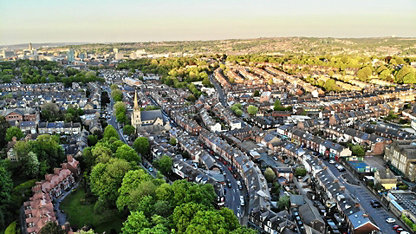New money in rural areas examines the economic, social and environmental impacts on rural localities and communities of new investment, and seeks to answer: how can the benefits of new money flowing into rural areas be maximised and how can potential negative externalities be mitigated?
Research approach
In assessing local impacts, the research looks at the underlying values of investors and the way in which assets are managed and whether the investment brings discernible benefits to rural places and communities.
Through ten case studies from across Europe (including Trump International Golf Links in Scotland, Moominworld Ltd in Finland and James Dyson's Beeswax Farming Ltd in the UK) assessed against an appraisal framework, the report covers both existing activities and land uses, such as a vineyard and farming, and transformational changes, including a theme park, golf course and renewable energy. The report finds many examples of good local relationships between investors and communities that are delivering positive outcomes, but also examples characterised by growing mistrust and suspicion.
Research findings
The report concludes by considering how best to protect local interests and ensure good investment practice and discusses the effectiveness of regulation/legislation and the setting/implementation of environmental, social and governance (ESG) standards.
RICS Research Trust is now the Property Research Trust
This research was funded by the RICS Research Trust. As of the end of January 2021, RICS Research Trust became fully independent of RICS, and has been rebranded as the Property Research Trust. Find out more here . The Trust supports and promotes high-quality independent contributions to knowledge in the disciplines of land, real estate and construction.
Our latest research
Providing information to stimulate debate and promote leading-edge thinking.
Contribute to market surveys
We rely on input from our professionals. Take part in our leading market indicators











